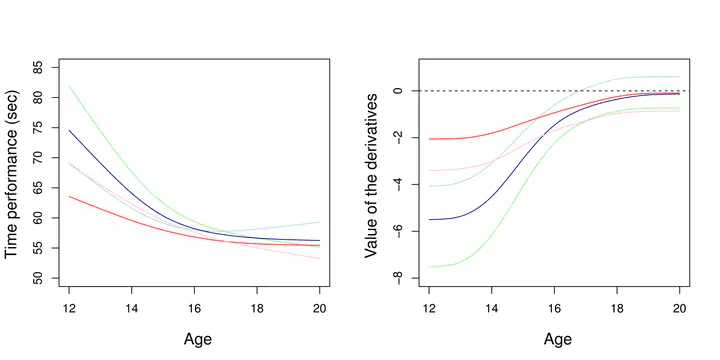Talent detection in sport: Machine Learning methods for performance prediction

Abstract
Many data collected in sport science come from time dependent phenomena. Several sport structures such as federations or clubs have collected these longitudinal data, hoping it may help the identification of future talents. Moreover, recent studies highlighted that most of top-level young athletes do not remain at the best level of performance at adult age. Thus, the talent identification issue might benefit from data analysis and particularly from machine learning methods. In the present paper, the main goal is to predict the future performance of an athlete, using its own past performances and information from other athletes. Due to their genuine nature and the uneven observation timestamps, performance data are considered as functional over time and fitted thanks to B-spline basis. These functional observations are assumed to be realizations of a Gaussian stochastic process, and the problem is addressed through Gaussian process regression. This task is treated by a mixed effect model where a central process is common to all observations and a random process is fitted on each individual curve. This approach allows to rely on information from the whole dataset for modelling and then settles the issue of sparse observations. A first clustering step is performed on the functional data, which allows a cluster-specific prediction step afterwards. The whole procedure is estimated from a Bayesian perspective, which naturally enables the computing of uncertainty and credible intervals for our predictions. The effectiveness of the method is assessed through a simulation study as well as an application on a real data-set from the French Swimming Federation. The usefulness of the method is twofold, offering a better understanding of the performance progression phenomenon in sport, and providing an automatic talent identification tool.